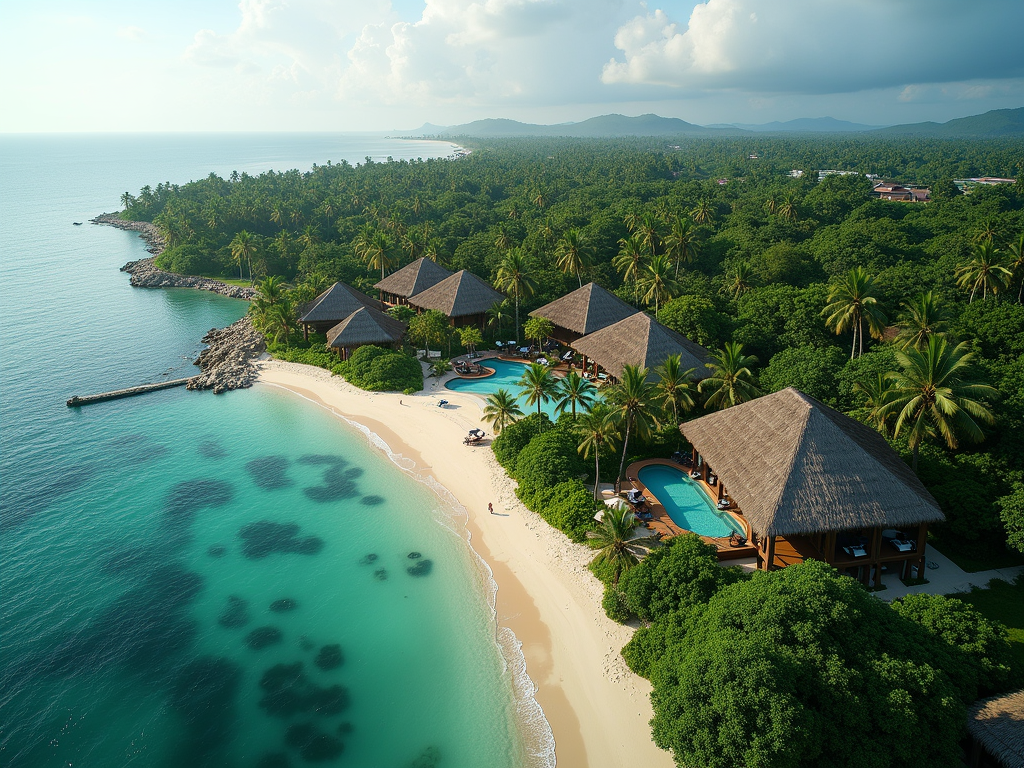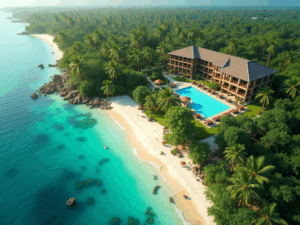At Fortis Lifestyle & Hospitality (FLH), we believe in the transformative power of hospitality to breathe new life into Nigeria’s heritage sites. By blending cultural preservation with modern luxury, we are not only enhancing guest experiences but also driving economic growth and community development. This article explores our strategic approach to revitalizing iconic destinations like Whispering Palms Resort, showcasing how hospitality investments can unlock Africa’s untapped potential.
The Strategic Role of Hospitality in Heritage Revival
At Fortis Lifestyle & Hospitality (FLH), we recognize that hospitality is not just about providing luxury accommodations—it’s about breathing new life into Nigeria’s cultural heritage while meeting the expectations of modern travelers. Our approach to heritage revival is strategic, blending preservation with innovation to create premier destinations that honor the past while embracing the future.
One of our core strategies is the seamless integration of eco-conscious resort transformations into heritage sites. By adopting sustainable practices—such as solar energy, water recycling, and locally sourced materials—we minimize environmental impact while enhancing the authenticity of the guest experience. For example, our revitalization of Whispering Palms Resort showcases how a historic landmark can evolve into a sustainable retreat without losing its cultural essence. The resort now features low-impact villas nestled within lush landscapes, offering guests a connection to nature while preserving the site’s indigenous charm.
Another key pillar is our focus on wellness-centered offerings, which align with global tourism trends. Today’s travelers seek more than just a place to stay—they want transformative experiences. At FLH, we curate wellness programs rooted in Nigerian traditions, such as spa therapies using local botanicals and yoga sessions set against the backdrop of historic architecture. These initiatives not only elevate guest satisfaction but also drive revenue by attracting high-value, experience-driven tourists.
Our success lies in balancing cultural integrity with modern luxury. We collaborate with local artisans and historians to ensure that every design element—from architecture to cuisine—tells a story. This authenticity resonates with guests, fostering deeper engagement and repeat visits.
From a business perspective, these strategies have proven their worth. Our heritage properties consistently outperform industry benchmarks in occupancy rates and average daily revenue. More importantly, they create jobs and empower local communities, reinforcing FLH’s commitment to sustainable growth.
By leveraging hospitality as a tool for heritage revival, FLH is setting a new standard for cultural tourism in Africa. Our thought leadership in this space demonstrates how strategic investments can transform historic sites into thriving destinations—delivering world-class experiences while safeguarding Nigeria’s rich legacy for generations to come.
Conclusions
Reviving Nigeria’s heritage sites through hospitality investments is not just about preserving the past—it’s about creating a sustainable future. At Fortis Lifestyle & Hospitality, our commitment to blending culture, innovation, and sustainability ensures that these landmarks thrive as premier destinations. By focusing on guest experiences and community impact, we are setting a new standard for lifestyle travel in Africa.





